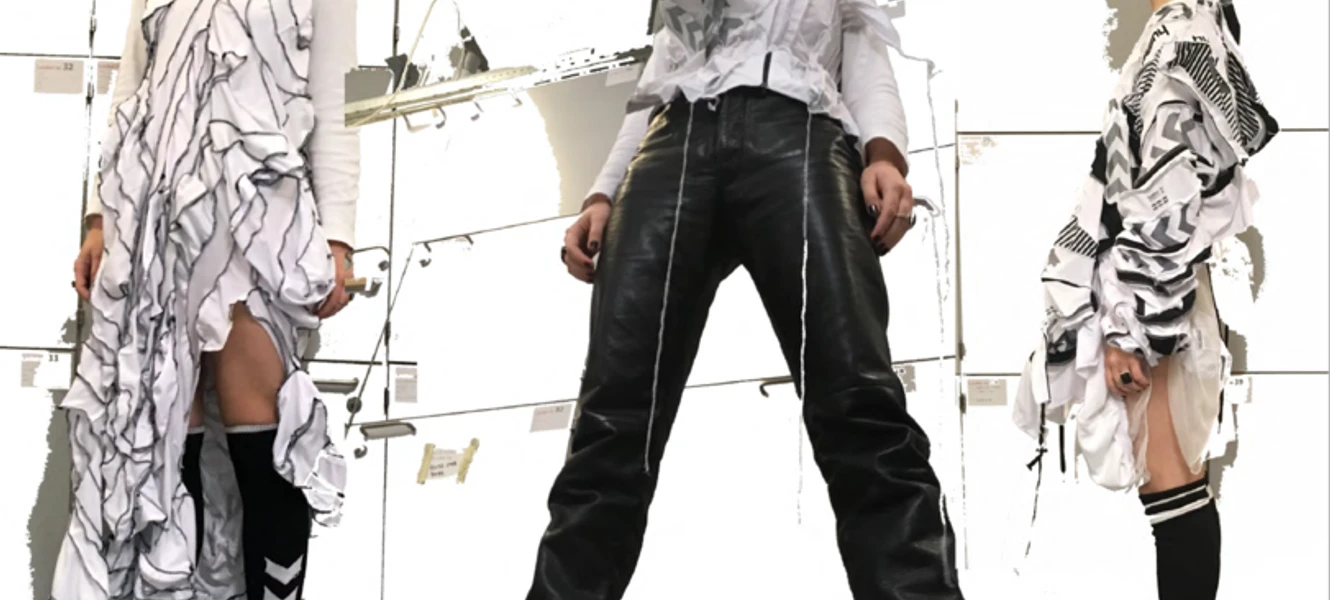
New partnership receives three-digit million amount for green mission
Clothes, shoes and other textiles are made up of many different fibres, which makes them difficult to recycle. The same applies to plastic waste, which is a complicated and mixed plastic stream. According to the latest estimate from the Danish Environmental Protection Agency, each Dane discards of 6-7 kilos of textiles per year. Furthermore, 200,000 tonnes of plastic go straight into the waste incinerator – a huge waste of resources, materials, which impacts the environment. Design School Kolding is part of a project to help fix this problem.
The Innovation Fund has just granted DKK 106.5 million for a mission-driven partnership, which must ensure a circular economy for plastics and textiles in Denmark by 2050. 92 partners must deliver on one out of four national missions that must contribute to the green transition. The first projects are ready for launch, and more will follow. It is expected that the projects that are initiated now alone will be able to save greenhouse gas emissions corresponding to approx. 650,000 tonnes of CO2-eq by 2050.
Among other things, the projects will examine how information technology can contribute to better waste sorting, how engineers and fashion designers can jointly reduce CO2 emissions through robotic technology, and how we can ensure that high-quality plastics from the healthcare sector do not go up in smoke, but are instead recycled.
- The Danish government is making significant investments in the green transition. We have given a substantial boost to green research, which will help to achieve Denmark's very ambitious goals. By 2030, we must have reduced our CO2 emissions by 70 percent, and 80 percent of our plastic waste must be removed from incineration. One of the tools we need to use far more is recycling. We must rethink to recycle. In the circular economy partnership, we have therefore brought together the strongest actors in the field when it comes to industry, business and research. We turbocharge innovation to reach our goals. For the benefit of the planet, the climate, competition and the future, says Danish Minister of Education and Research, Jesper Petersen.
We must involve the users
Design School Kolding collaborates with the Technological Institute, RUC and VIA in three targeted projects:
- Textile Circular Direction (led by the Technological Institute). A large project that, among other things, looks at the entire value chain and deals with how we ensure that our resources reenter that value chain.
- Circular Health (led by RUC), that works with the use and recycling of resources throughout the health sector.
- Mass Costumization (led by VIA). The project is among other things about designing clothes with a better fit.
Associate Professor and Co-leader of the Lab for Sustainability and Design at Design School Kolding, Karen Marie Hasling, looks forward to the collaboration and is hopeful that it will make us even better at integrating sustainability into the way we design and at integrating design in sustainable transition.
- Sustainability is already a fundamental premise for the work we do at Design School Kolding – both when it comes to teaching and research. For us, it's about designing for and with the consumer in mind on a level playing field with technological development. We must involve the user/consumer in terms of information, involvement and education – and together find out how to improve the industry and society, says Karen Marie Hasling.
About the partnership
The Partnership for Circular Economy for Plastics and Textiles currently has 92 partners, who are led by a board of directors, where Dorethe Nielsen, Vice President at Novo Nordisk, is chairman, while Henrik Bindslev, Dean of the Faculty of Technology at the University of Southern Denmark, is deputy chairman.
The partnership has drawn up the national Roadmap for a circular economy for plastics and textiles towards 2050, which today forms the basis of the Partnership's Mission. The Partnership for Circular Economy for Plastics and Textiles aims to develop, deliver and implement solutions that can contribute to a more sustainable use and recycling of plastics and textiles and thus contribute to ensuring that Denmark reaches the climate targets for CO2 reduction by 2030 and 2050.


